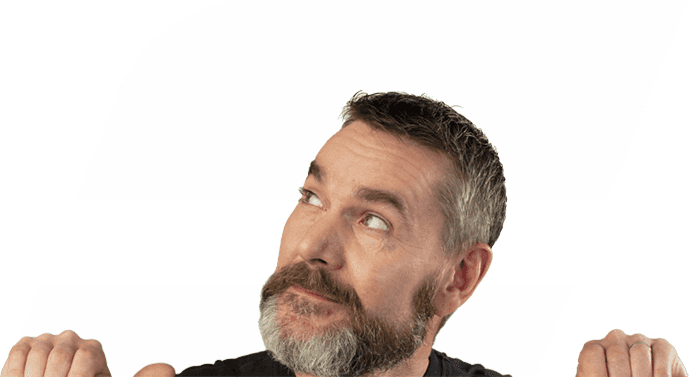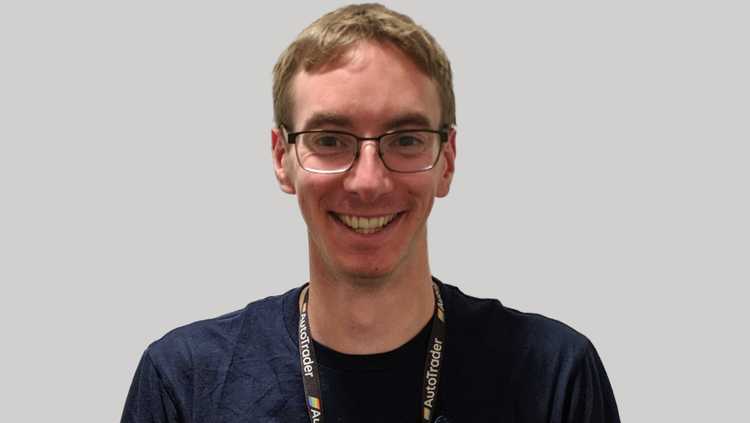The Auto Trader Sustainability Network is made up of different people from across the business. Each of them is on a different sustainability journey of their own, and this series of articles gives you the chance to hear their unique story. Meet David Williams.
When did you first become aware of the need to be more sustainable?
For as long as I can remember, I've loved the outdoors. As a child, I was in the Cubs and Scouts and enjoyed the hikes and camping, where we were always taught about the importance of leaving everything tidy and not dropping litter, so it probably stemmed from there. Being frugal has also played a large part; I'd always been taught to put on a jumper rather than turning up the heating and would often think to use what I had around me to make something before I thought about buying a 'proper' thing.
What interests you about sustainability?
Sustainability is such a massive topic that there's always something new and exciting to read about. Whether that's a new product or service or a new technology that is being developed, which will help make things better or easier. Reading and learning about it is a great way to scratch my curiosity.
What was one of the first changes you made on your journey to be more sustainable?
The first proper conscious change I made was around my diet. I'd been an omnivore up until a few years ago and had never really considered the environmental impact. I'm not particularly an animal lover, and whilst I was aware of how animals in the food industry were treated, I thought I was doing enough by buying free-range eggs and higher welfare meat. When I started to learn more about the emissions from meat and dairy, I first dabbled with adopting a more plant-based diet. I started one Veganuary trying to adopt a vegetarian diet for a month. Whilst I did manage it, I ended up swapping meat for cheese and eggs, and the food I was eating wasn't exactly inspiring. The following year I tried it, did a bit more research, and got hold of a couple of great vegan cookbooks. I went all in this time and discovered the joys of tofu, chickpeas and oat milk. It's an excellent opportunity to revisit those same five meals you cook week in, week out and mix it up a little.
What change has been the easiest?
Switching my energy supplier was the easiest and one of the most effective changes I've made. I chose Bulb as I'd had a referral code from a friend, so we both got some money off, which is always good. They're also not much more expensive than the tariff I was previously on, which, whilst it was marketed as a green tariff, mainly was made up of nuclear, and I'd decided I wanted 100% renewable. Plus, they send you lovely emails once a year telling you how much CO2 you've saved last year, I saved the equivalent weight of 39 zebra duikers of electricity and ten pygmy hippos worth of gas! It took just a few minutes, and apart from a couple of teething problems with my smart meter, I've never had any issues.
What change has been the hardest?
While I've cut down significantly, I still miss some dairy products, cheese, and ice cream. I'm still yet to find a truly convincing hard cheese substitute and would rather go without in most cases. Those who know me well will attest to my love of ice cream, and whilst I've had some pretty good vegan flavours, nothing beats the real thing.
As soon as I was brave enough to try oat milk, I was hooked. I used to have whole milk every day on my cereal, and one hot chocolate was one of the few hot beverages I liked, so I didn't think giving it up would be easy, but it's such a simple like for like swap that it requires very little thought on my part. When I first switched, it could be a bit difficult to get hold of in my local supermarket - Aldi didn't stock it at all, and the supply at my next nearest supermarket Waitrose was unreliable. Nowadays, Aldi has an own-brand version that is fine and Waitrose stocks half a dozen or so different brands that I'm spoiled for choice. It is a bit more expensive than the dairy equivalent, but they have the added benefit of not needing to be refrigerated, so there's less waste and less chance of me running out and being grumpy that I've not had my cereal that morning!
What future changes would you like to make/are working towards?
Since I've been working from home more, I've had more time to shop locally. I live close enough to a market that has a couple of fruit and veg stalls three times a week, which has helped me reduce plastic packaging and control how much I buy. I always hated having to buy large packs of things like carrots and potatoes from the supermarkets because I live alone and would often have to make emergency soup to stop them from going to waste. Now I can pick and choose exactly how much I want and shop more seasonably.
Can you recommend some simple changes that others can make?
I think the best advice I can give would be to focus on one thing at a time. Trying to go all-in at once can be very daunting, and you're more likely to fail. Pick one thing to focus on, whether that's diet or plastic or something else and make small changes at a time. That way, you're more likely to succeed, and you'll get a sense of satisfaction that can help you with the next change.
Can you recommend any resources to help people understand their impact / start their sustainability journey?
It would be remiss of me not to recommend the Carbon Literacy training. Your commitment at the end of the course can kick start your journey. We also have a #sustainability-network slack channel community, which is a great place to ask questions and get answers from your friends and colleagues. Lastly, I get a lot of my news from Twitter; you can start by following a few people and building your knowledge. A few of my favourites are @Carbon_Literacy, @CarbonBrief and @Ecologi_hq


